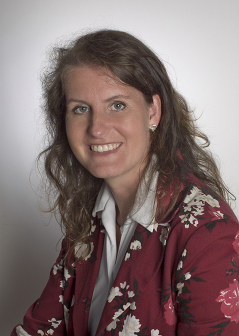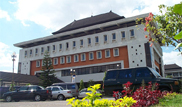QOS IN NEXT GENERATION INTERNET: PUTTING THE USER INTO THE FOCUS
Gabriele Kotsis
Institut für Telekooperation
Johannes Kepler University Linz
Altenberger Strasse 69, 4040 Linz, Austria
gabriele.kotsis@jku.ac.at

Abstract
The past decades enabled us with (nearly) world wide access to the internet using a variety of underlying wireless and wired network technologies providing high speed data rates. Availability, high throughput, high bitrates, low packet loss ratios have been driving factors in network design and management. Various concepts for supporting quality of service (QoS) have been proposed. But are we really looking at the right parameters in QoS? Does this actually enable us to retrieve the information we are looking for in a fast and easy way? Does this allow us to communicate with each other more efficiently? Can we have easy and convenient access to computational resources where and when needed? Do we have confidence in the information we find? Do we feel safe when working online?
In this talk, we argue for user-oriented QoS concepts going beyond the traditional concepts well understood in performance evaluation. QoS in a broader sense needs to better reflect what users are actually planning to do, and has to consider user needs and objectives from a more application and task oriented view rather than from the pure technical point of view. Recent research work is addressing the concept of user-perceived QoS but much more efforts are needed in this direction. New QoS parameters and measures need to be introduced assessing performance in a user understandable way. Such parameters have to go beyond time and accomplished work per time as units of measures and have to consider user satisfaction at higher levels. Aspects from other disciplines such as usability engineering, security, but also semantic systems have to be integrated. New parameters also require new techniques for characterizing and modeling user behavior and the mappings on computer and network resource usage. New computing environments characterized by a highly dynamic and changing infrastructure (such as pervasive computing environments, sensor networks, mobile computing infrastructures) also put new challenges for modeling, analysis and management techniques. The objective of this talk is to outline the associated research challenges and to give an overview on existing solutions and approaches towards user perceived quality of service concepts.
Gabriele Kotsis
Univ. Prof. Mag. Dr. Gabriele Kotsis - Prof. Kotsis received her master degree in 1991 (honoured with the Award of the Austrian Computer Society), her PhD in 1995 (honoured with the Heinz-Zemanek Preis) and?the venia docendi in 2000 (computer science, from the University of Vienna). She was working as a researcher and teacher at the University of Vienna (1991-2001), at the Vienna University for Economics and Business Administration (2001) and at the Copenhagen Business School (2002). Since December 2002 she is holding a full professor position at the Telecooperation Department at the Johannes Kepler University Linz. Her research interests include performance management of computer systems and networks, workgroup computing, mobile and Internet computing, telemedia and telecooperation. She has experience in national and international research project in those areas, including for example the EU-funded international BISANTE project on network traffic modelling and simulation, where she was technical leader, or the EMMUS project on Multimedia Usability where she was project coordinator. Gabriele is author of numerous publications in international conferences and journals and is co-editor of several books. She is member of IEEE and ACM and acting president of the AustrianComputer Society. She is actively participating in the organization of international conferences.
Human-computer interaction within an ubiquitous environment: application to living environment dedicated to dependant people
M. Mokhtari
GET/INT, 9 rue Charles Fourier, 91011 Evry Cedex. France
Emails: Mounir.Mokhtari@int-evry.fr

Abstract
Information and communication technologies are considered by the rehabilitation engineering and research community as new opportunities to increase considerably the technological assistance to people with disabilities and consequently provide them a more equal place in our society. Emerging technologies, even if they were not originally designed to be accessible for people having special needs, can often be adapted and integrated into the user?s environment to increase a dependant person?s functioning in today?s increasingly technology-mediated world. Nevertheless, users are usually confronted to accessibility barriers located at the level of human-machine interface due to heterogeneous devices, features and communication protocols involved. These problems include both, physical difficulties to handle input devices, and cognitive barriers to understand and reach suitable functionalities. Consequently, accessible unified interfaces to control all the appliances and services are needed.
This should be possible only if accessibility barriers are detected and considered in a global solution based on a "Design for all" concept. The challenge is to consider standardization aspects from the physical low level (ex. sensors) to application level (ex. user interface) of any system design. To achieve this goal we have analyzed and identified users requirements with the implication of real users within real life environments.
The objective of this talk is to focus mainly on current research work which consists on providing semantically ubiquitous environment, integrating real daily living tasks, to provide end-users with most suitable accessible services within their indoor/outdoor environments. We will focus particularly on the human-machine interaction to provide perspectives to pervasive computing community.
Mounir Mokhtari
Mounir Mokhtari is an Associate Professor at National Institute of Telecommunication (INT) in France. He obtained his Master in physical science from university Val de Marne (Paris) France in 1992, and a Master of Research in networking from INT in 1994. Mounir Mokhtari collaborated with university Pierre and Marie Curie and INSERM laboratory to obtain his Ph.D in Computer Science in 1997. Mounir Mokhtari's research activity focuses mainly on Human-Machine interaction, rehabilitation robotics and health telematics. He obtained his Research Habilitation from the University Pierre and Marie Curie, in Computer Sciences, in 2002. Mounir Mokhtari, who is leading several European and national projects, is the head and founder of Handicom Lab (Handicap Engineering and Communication Lab) in 1999.
Spatial Data Integration on the Web: Issues and Solutions
Omar Bouclema
LSIS - CNRS, Université Aix-Marseille 3
Domaine Universitaire de Saint-Jérôme
Avenue Escadrille Normandie-Niemen
13397 Marseille Cedex 20
Tel : +33 (0)4 91 05 60 53
Fax : +33 (0)4 91 05 60 33
www.lsis.org

Abstract:
With the proliferation of spatial data and resources over the Internet, there is an increasing demand for efficient data integration solutions that allow federation/interoperation of massive repositories of heterogeneous spatial data and metadata.
Integration of spatial data poses several challenges. First, there is no accepted standard for spatial or geographic data representation. Second, a GIS that is the standard repository for spatial data, provides its own proprietary format as well as its specific query language; while geographic resources are designed for a variety of different purposes. Finally, orthogonal directions in the design of geographic resources may affect the semantics of the data they contain and impair their integration.
During this talk, we will address issues in spatial data and (quality metadata) integration. We describe some solutions and their implementation in a geographic mediation platform, compliant with OpenGIS recommendations.
Omar Boucelma
Omar Boucelma is a Professor in Computer Science at the University Paul Cézanne, Marseille. Prior to that he was an associate professor at University of Marseille, a research fellow at CNRS, the French national research institution; he has also served as a research associate at CU Boulder, Colorado. Omar Boucelma´s main field of research is in the representation and management of heterogeneous distributed data sources, focusing both on the architectural, language and the implementation aspects of the issue.
Omar Boucelma is conducting his research with application to various domains such as Geographic Information Systems (GIS), or Bioinformatics: as an example, he recently developed the VirGIS data integration system.
Omar Boucelma has served as a PC member in many Computer Science conferences: he was the PC co-chair of ACM GIS´05, and will we be chairing the organization committee for BDA´07, the French database conference.

